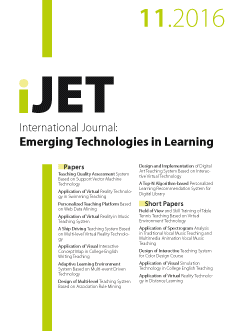Our chapter about „A Math Training Platform to Foster Individual Learning“ got published now. We describe there our innovative service Neo-Lernhilfen to train math skills on an individual level.
Abstract:
The use of mobile technologies such as Smartphone, Tablet are becoming more pervasive in our daily lives. Obviosly, it should also be used and integrated to support learning seamlessly. But not all learning environments can be used with all these devices. In some cases special libraries are needed (e.g. flash not available on iPAD, Mac OS X) or a permanent internet connection to a learning-platform is necessary. This publication proposes a new way in math education using the standard format PDF with completly auto-generated tasks for seamless learning and presents new learning scenarios for collaborations. On the one hand a new information system will be described and on the other hand use cases are carried out to establish individual learning. It can be concluded that indivitual math training is an important step to foster future education.
[Link to draft version @ ResearchGate]
Reference: Neuherz, E., Ebner, M. (2016) A Math Training Platform to Foster Indivitual Learning. In: Şad, S. N., & Ebner, M. (eds). Digital Tools for Seamless Learning (pp. 1-26). Hershey, PA: IGI Global. doi:10.4018/978-1-5225-1692-7

